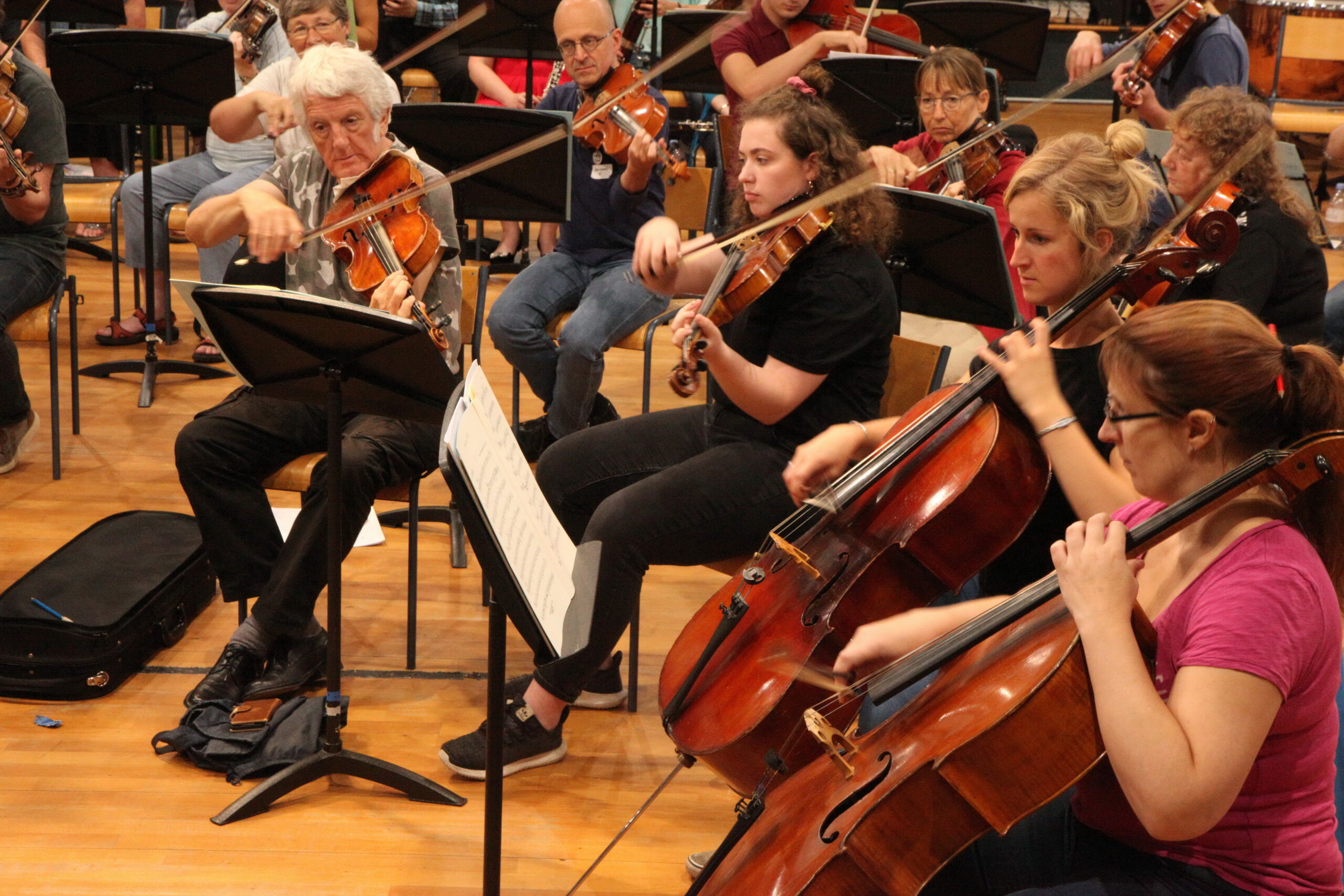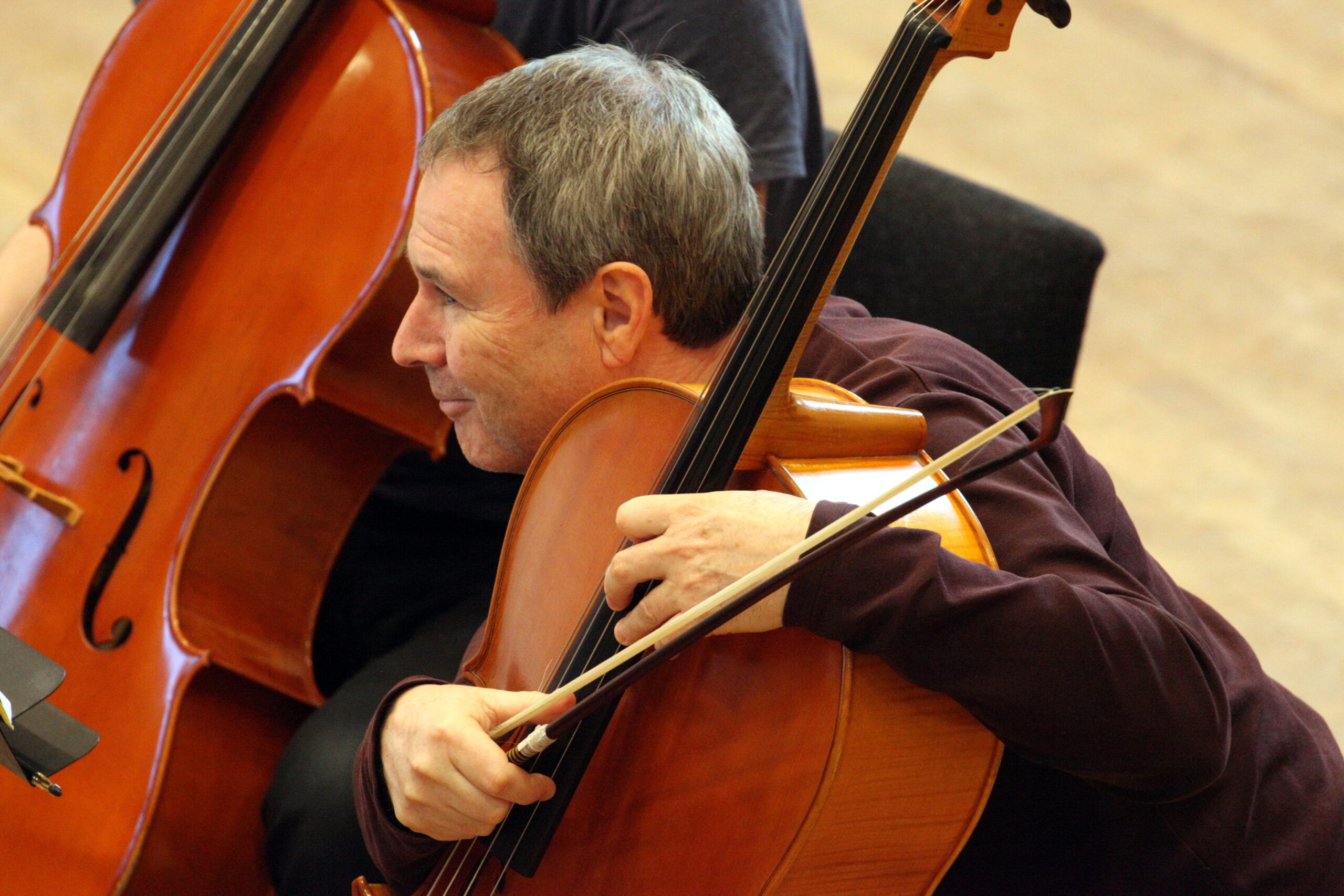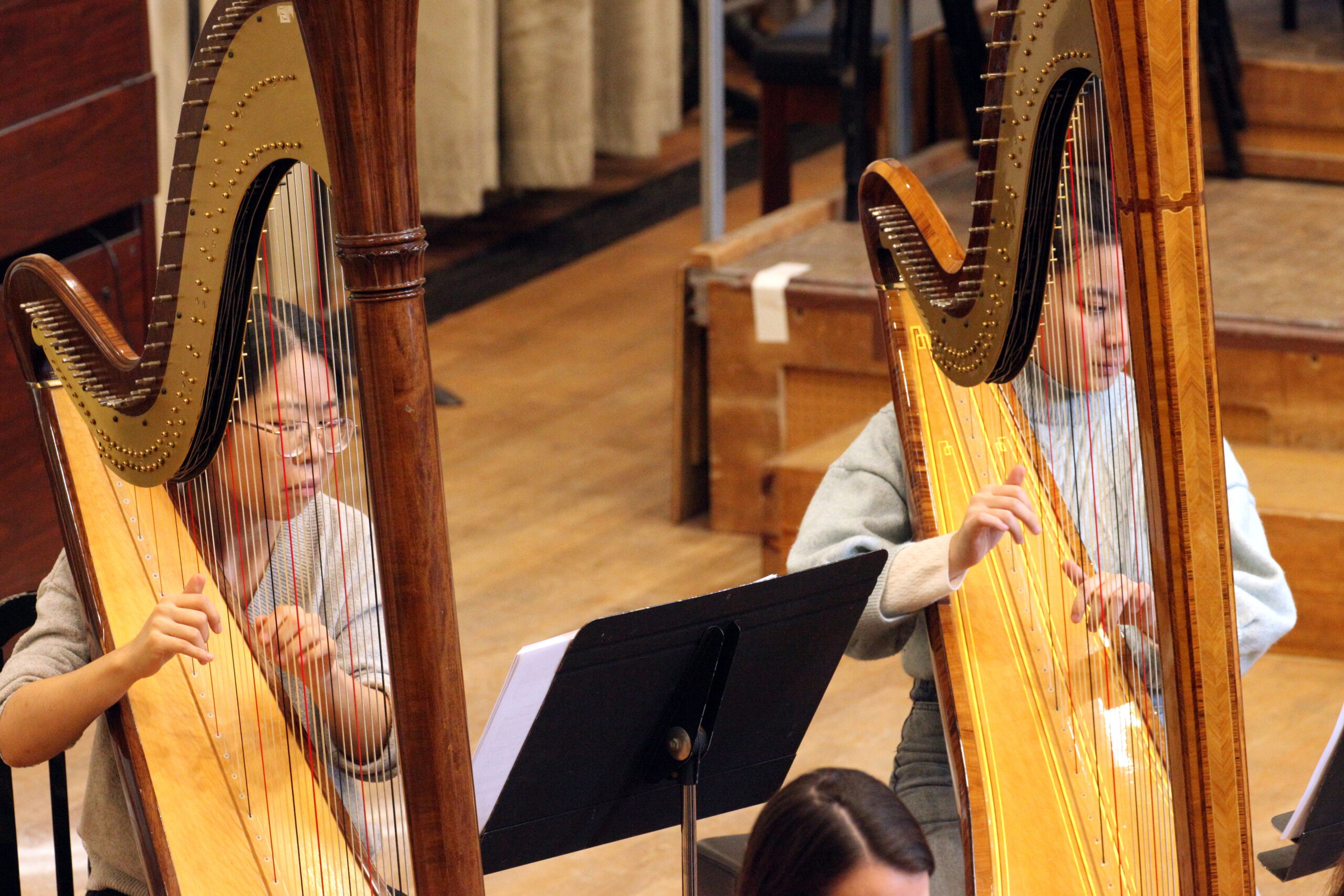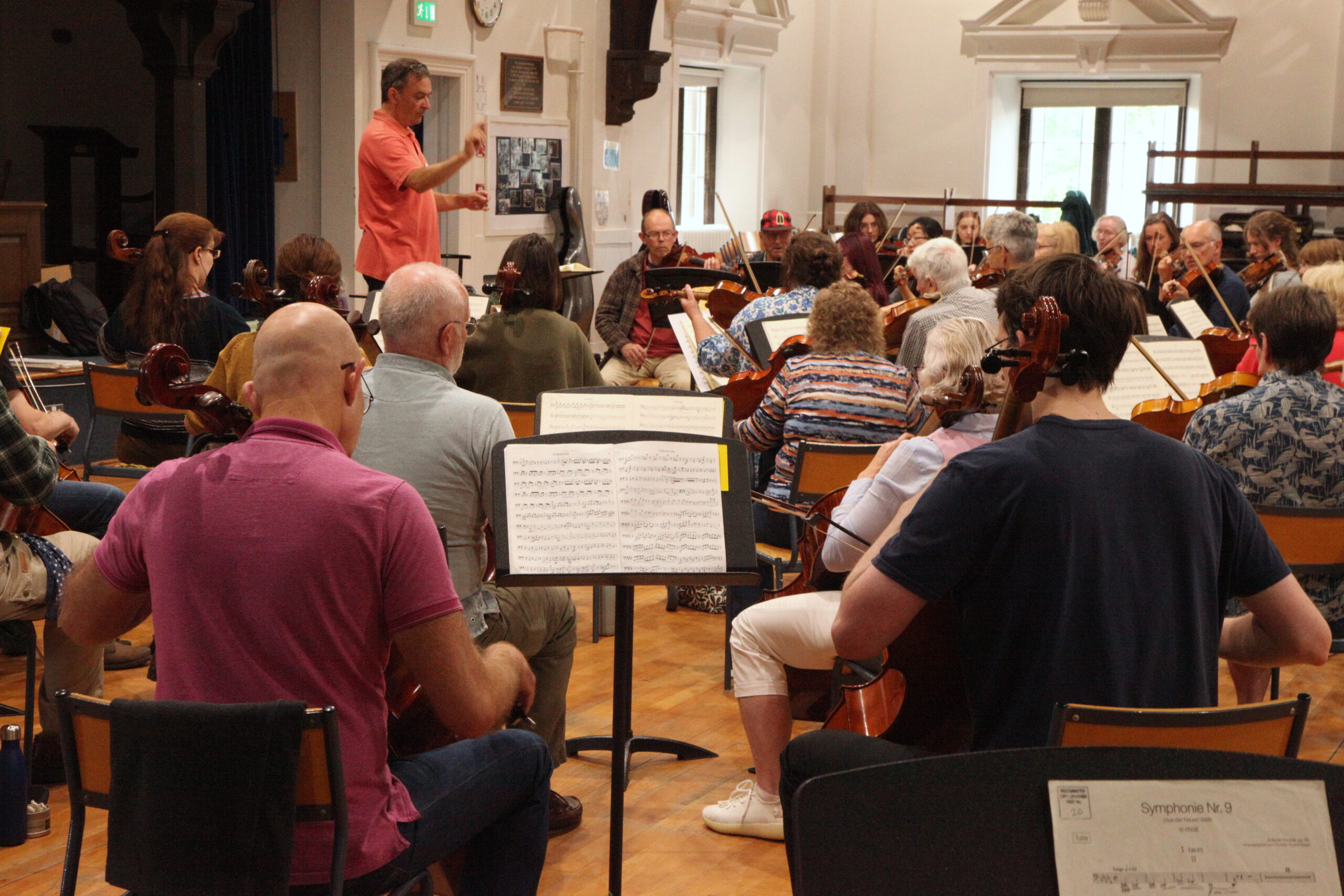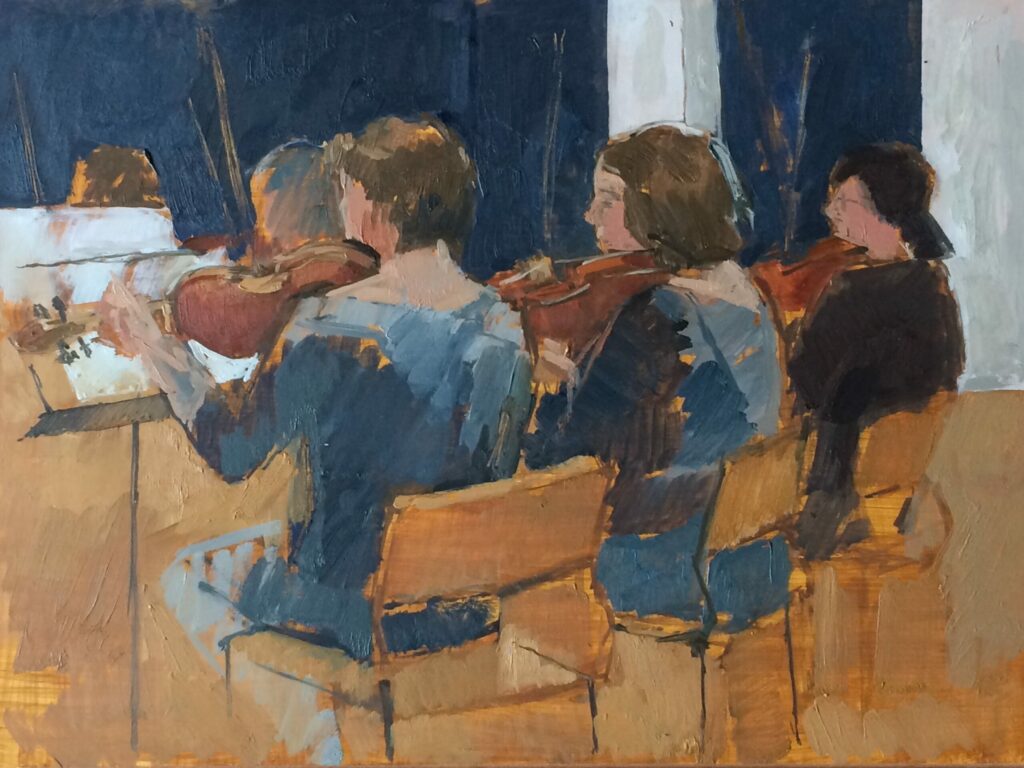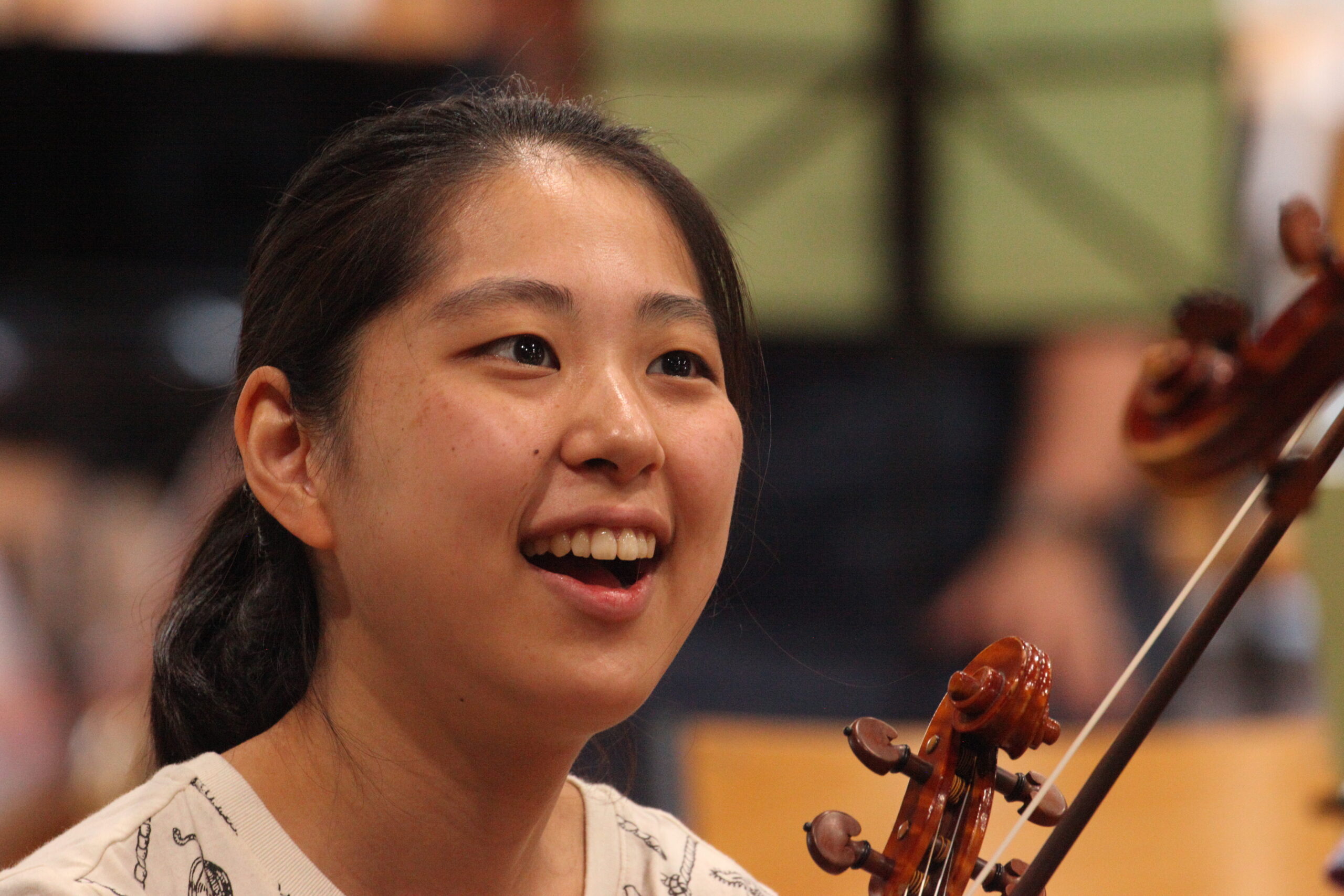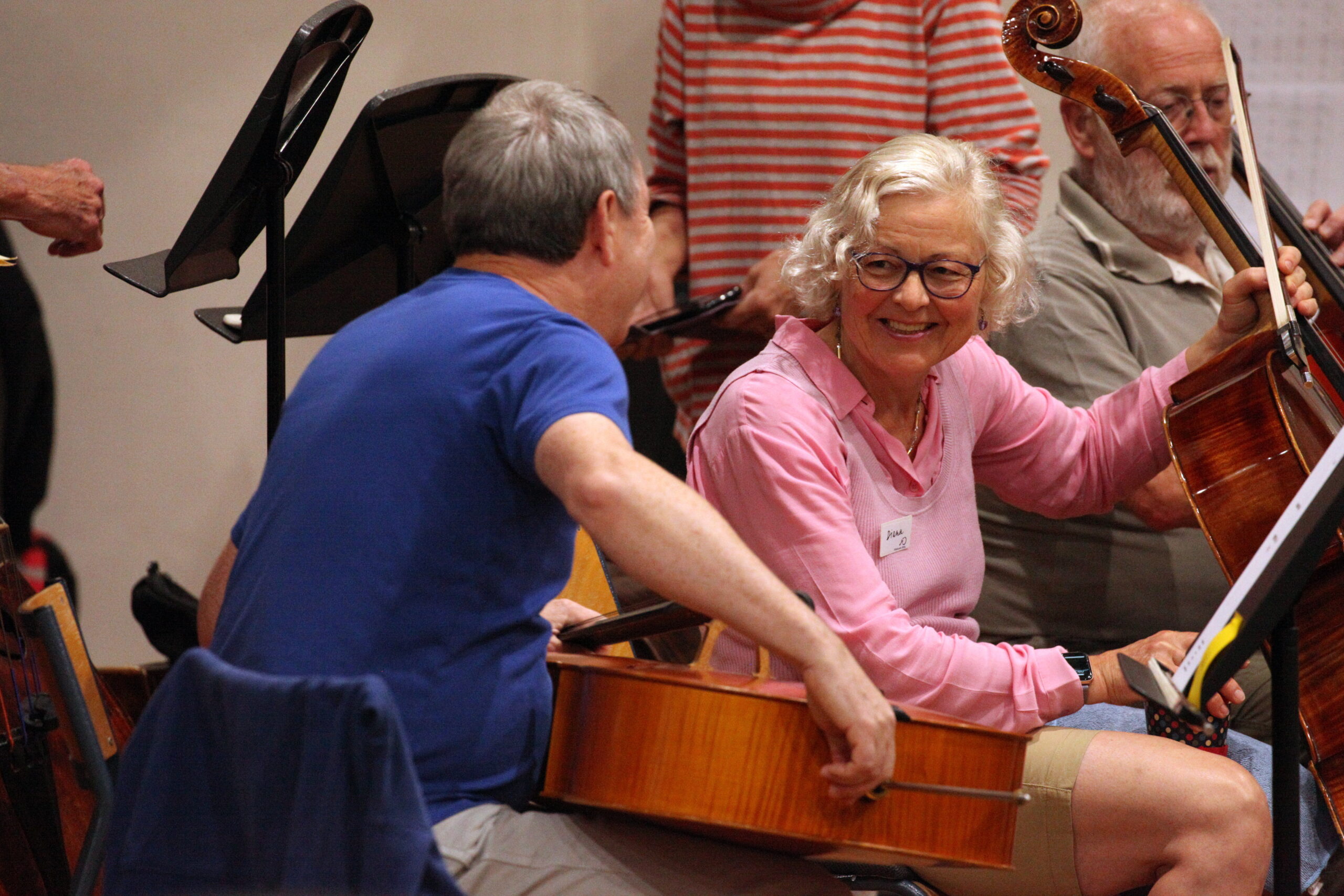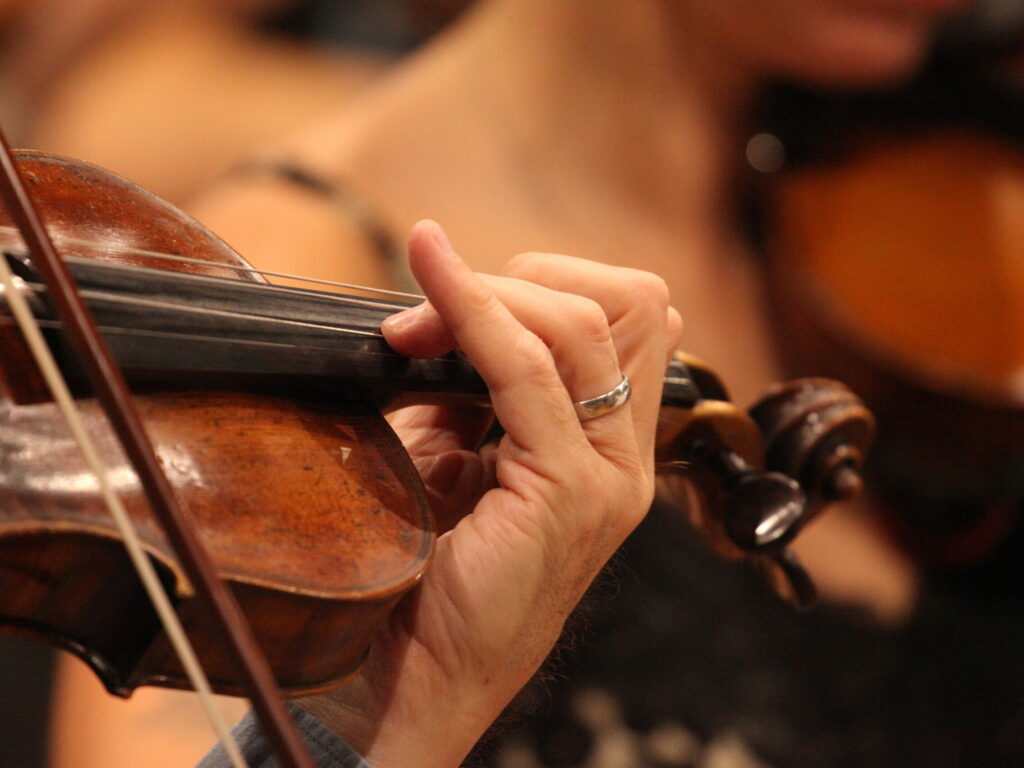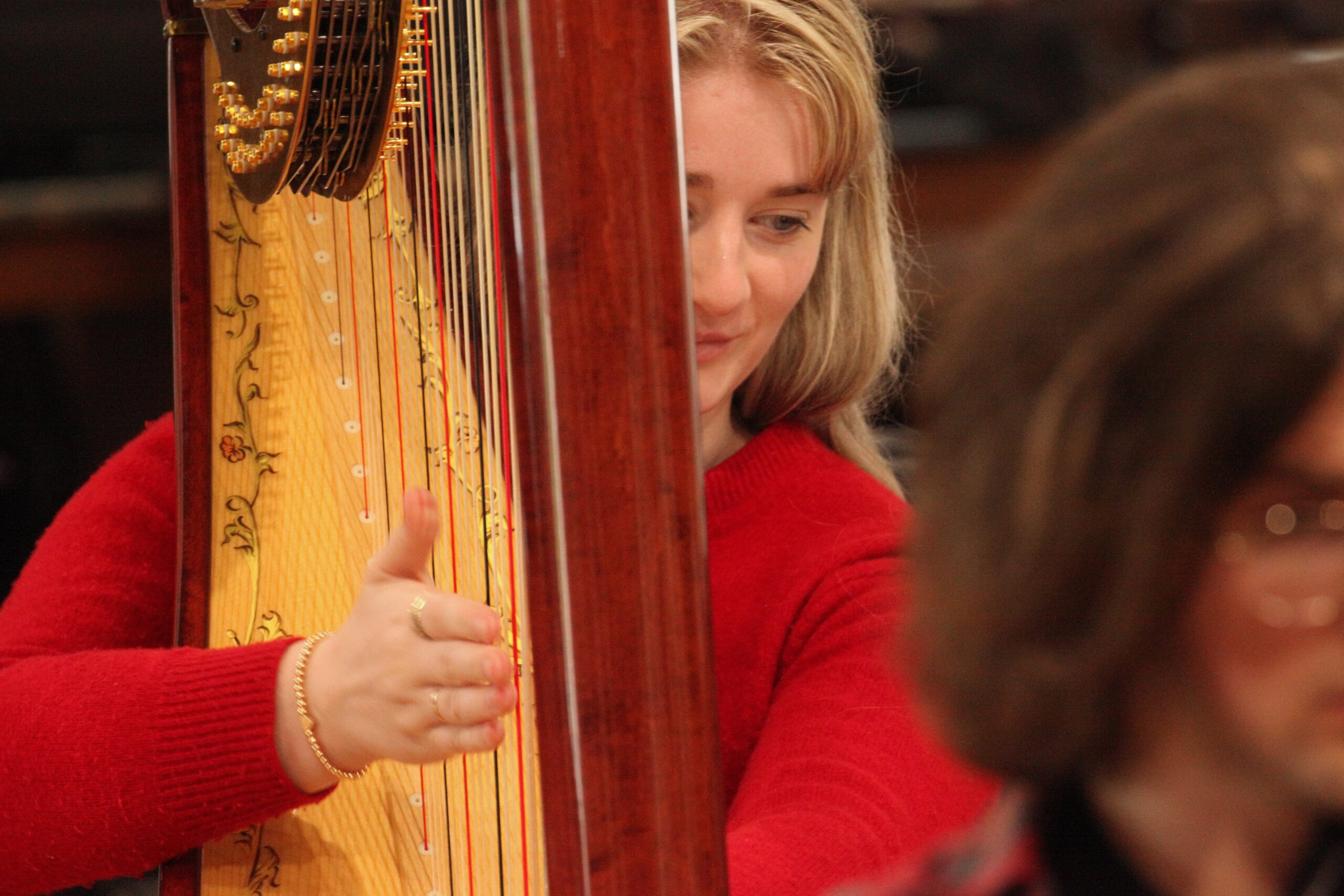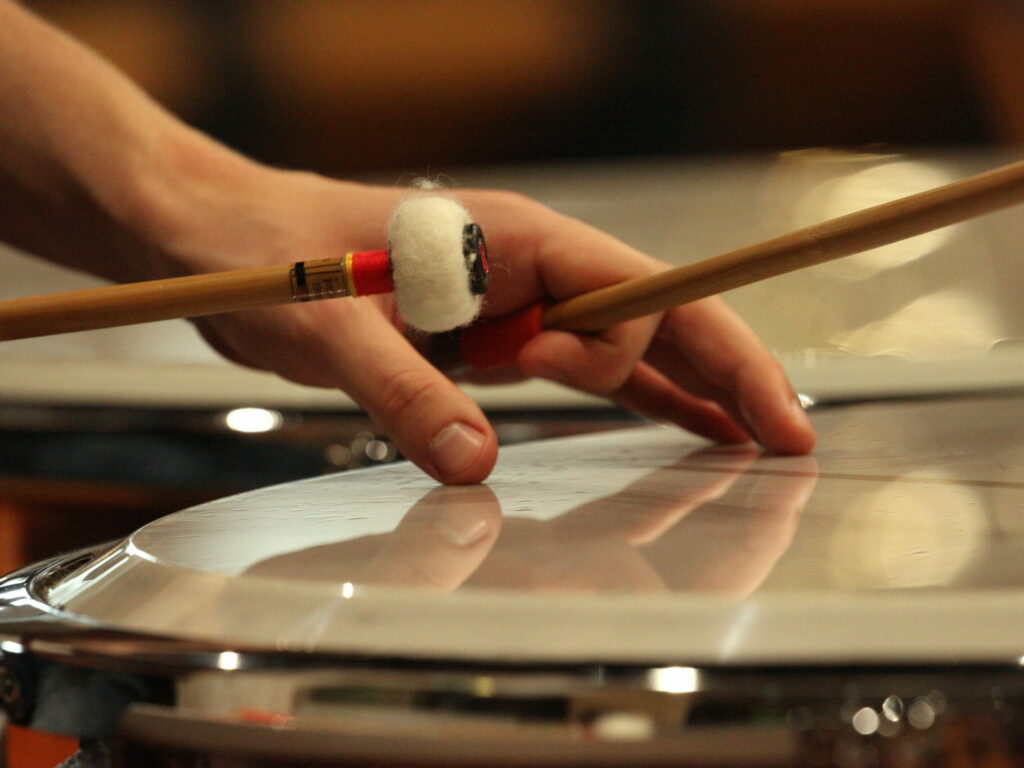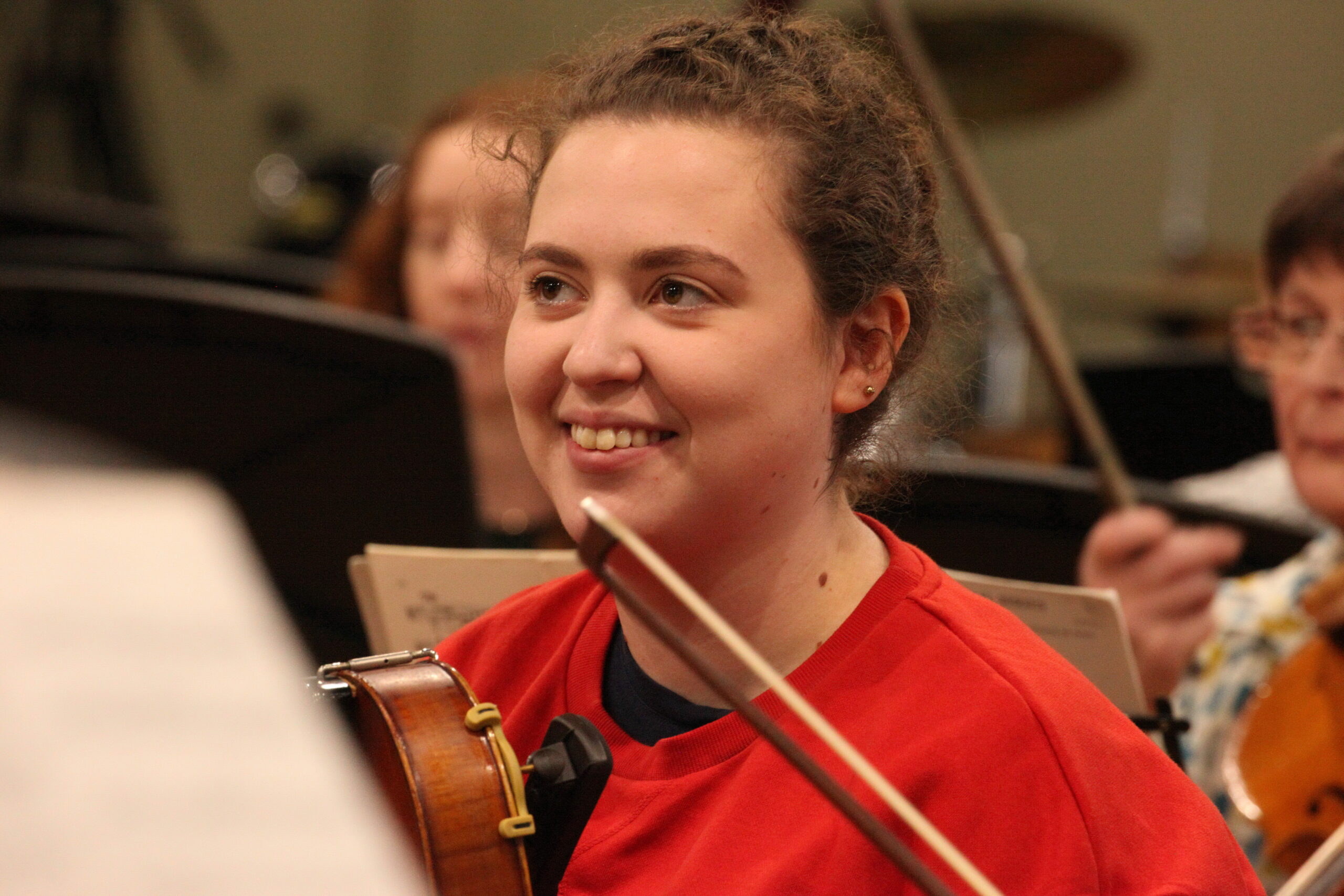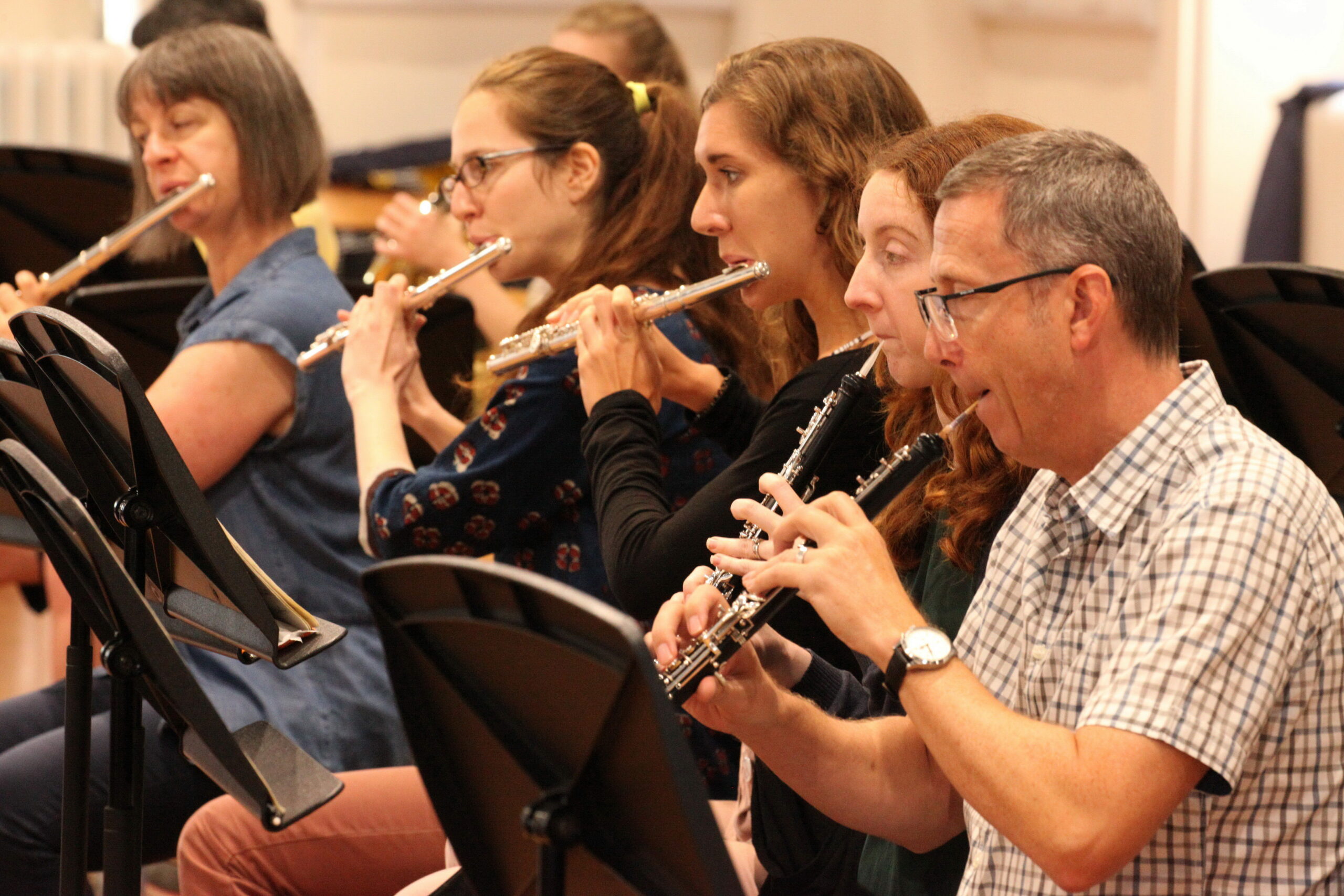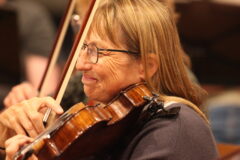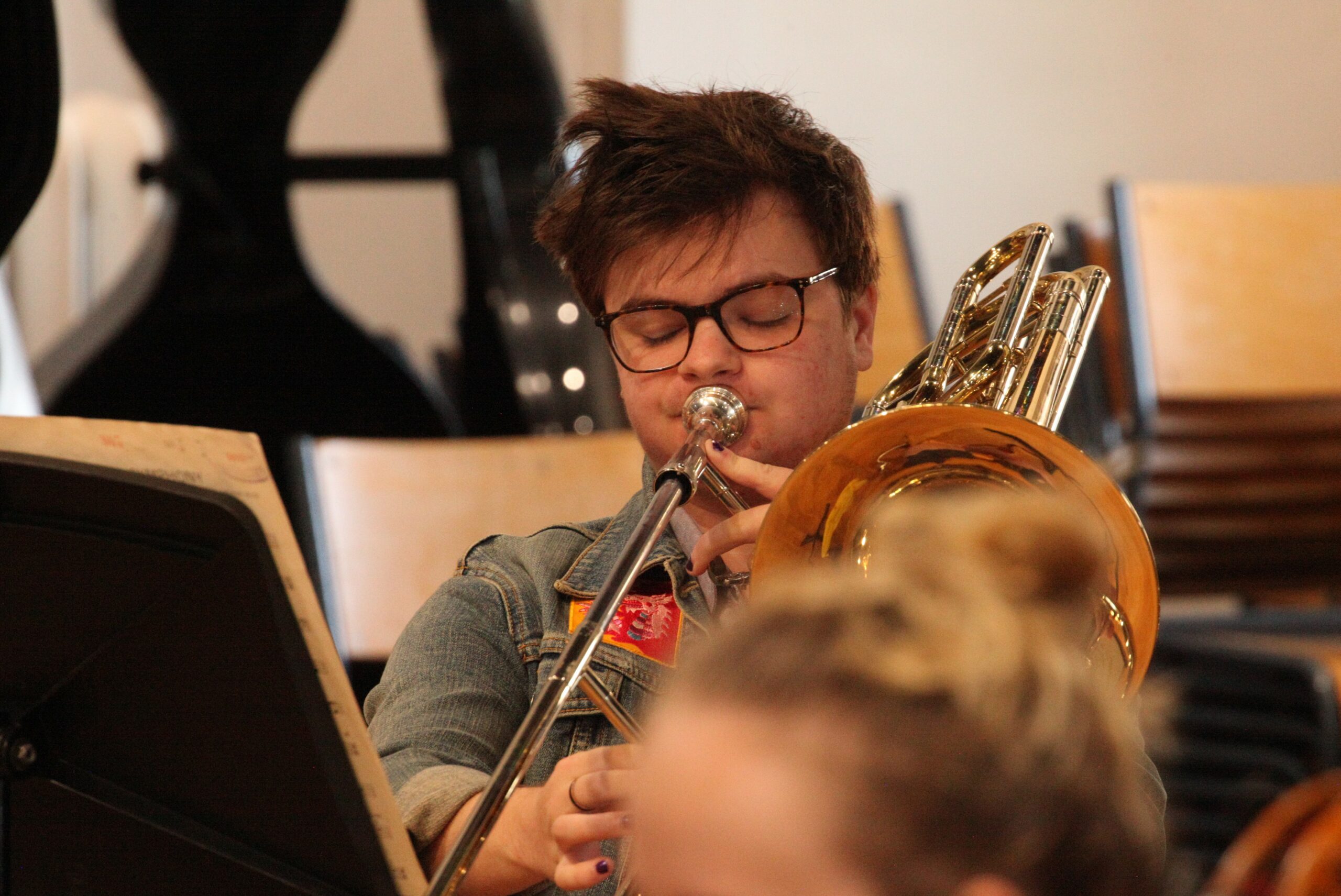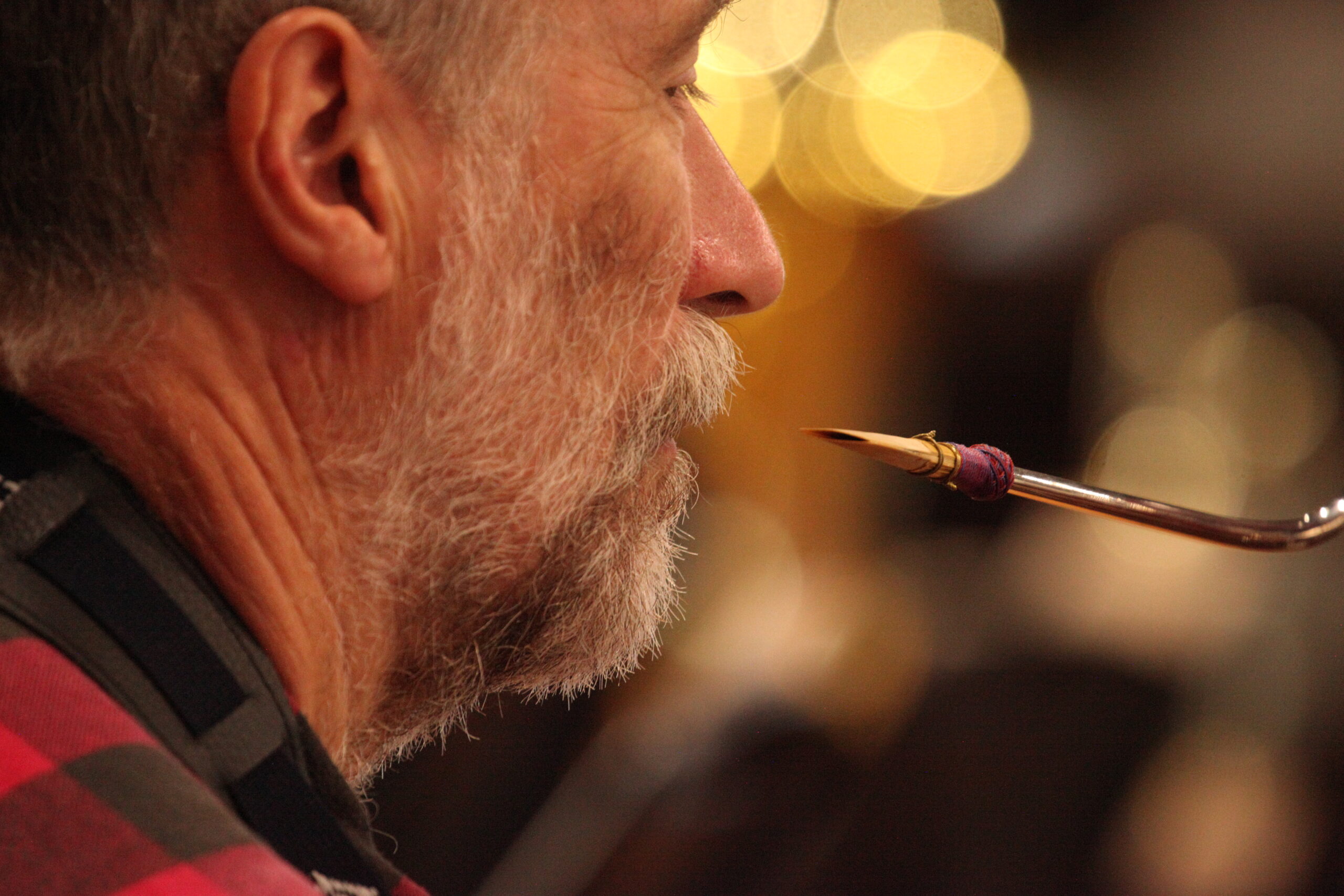Develop your skills on a Rehearsal Orchestra course
The main purpose of all our activities is, as our name implies, the process of rehearsal. Whether you’re a current or recent student, a retired professional or a fine amateur player from any walk of life, we’re here to help you build your orchestral skills and expand your repertoire at high level. We do not give concerts, but at the end of each course there is an open rehearsal, to which a non-paying audience is welcome.
Rehearsal Orchestra has no fixed membership or time commitment: you simply apply for the courses that interest you. Under Levon Parikian’s artistic directorship, we like to think we offer exciting repertoire for everyone across a season, including well-loved favourites and music you may not yet know you love!
At Rehearsal Orchestra you’ll benefit from a team of high-quality and experienced professional musicians. Conductors and section leaders are at the heart of everything we do, and their enthusiasm and expertise make every Rehearsal Orchestra course an inspiring experience.
The emphasis on the rehearsal process gives you the freedom to grow and learn at your own pace, whether as preparation for the profession or an alternative to your regular amateur playing.
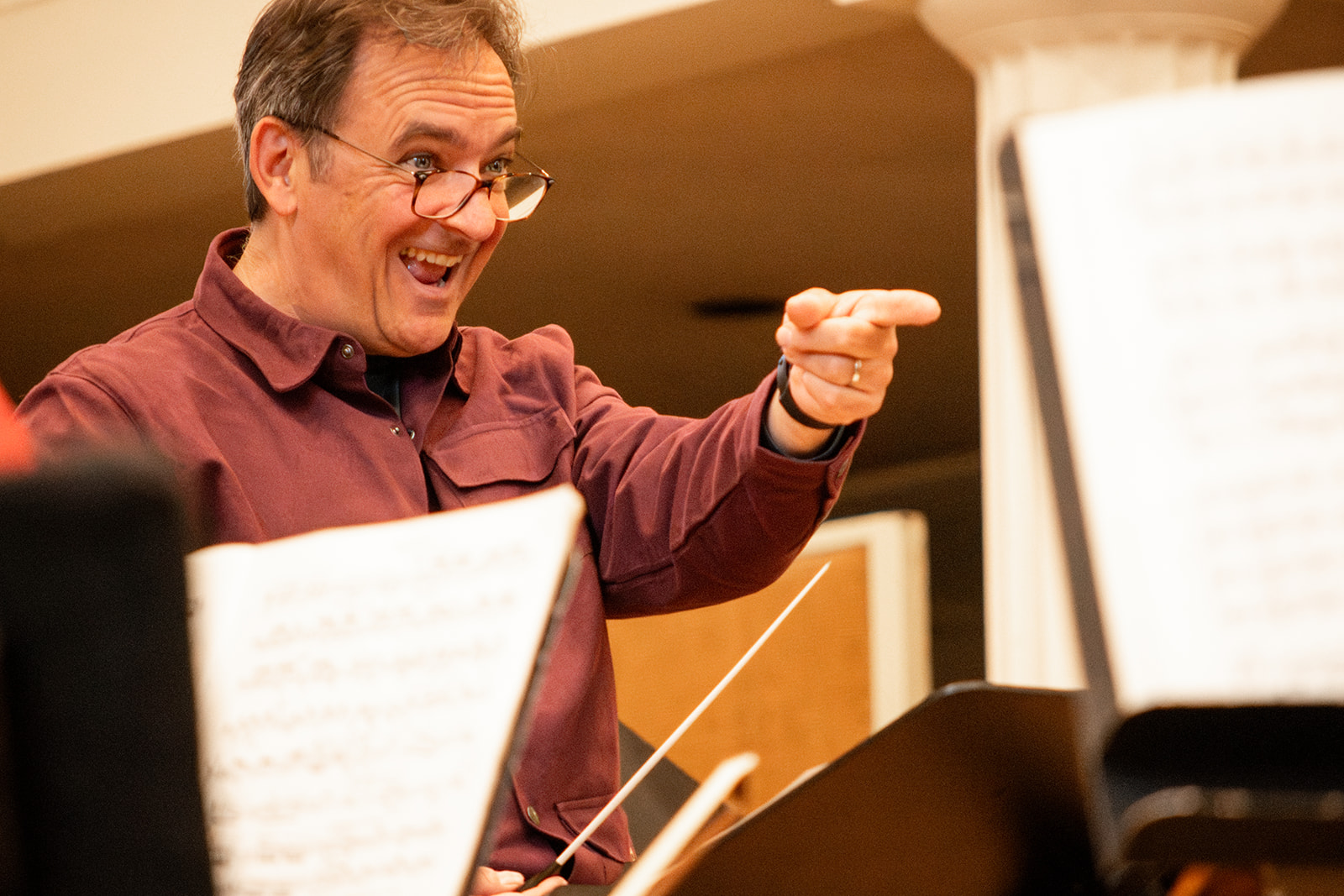
Shostakovich: Symphony No 5 Conducting workshop
-
Shostakovich
Symphony no 5
Join us for a rehearsal workshop with four conductors from the Royal College of Music’s postgraduate course in orchestral conducting, nominated by Toby Purser, the RCM’s Head of Conducting, each working on a movement of Shostakovich’s fifth symphony, under the supervision of our Artistic Director, Levon Parikian.
Applications are invited for all sections of the orchestra from players at Grade 8-plus, or equivalent.

Bartók: The Wooden Prince Suite
-
Béla Bartók
The Wooden Prince Suite
Bartók wrote The Wooden Prince as a one-act pantomime ballet (1914–1916) to a scenario by Béla Balázs. Bartók described the ballet as “a kind of elaborate symphonic poem to be danced to”. Despite a successful premiere in 1917, he came to realise that there was much musical padding in the ballet (for which he blamed Balázs). Over the following fifteen years he made many cuts in the stage version, and produced two leaner orchestra suites.
Set in an enchanted forest, The Wooden Prince is based on a fairy tale-like libretto featuring a prince and princess. The two are subjected to various trials, but at the end of the ballet they are allowed to come together and live, we assume, happily ever after. The score’s first few minutes are dazzling, a folk-tinged re-tread of Das Rheingold’s opening, the ensuing music blending ardent romanticism with the grotesque.
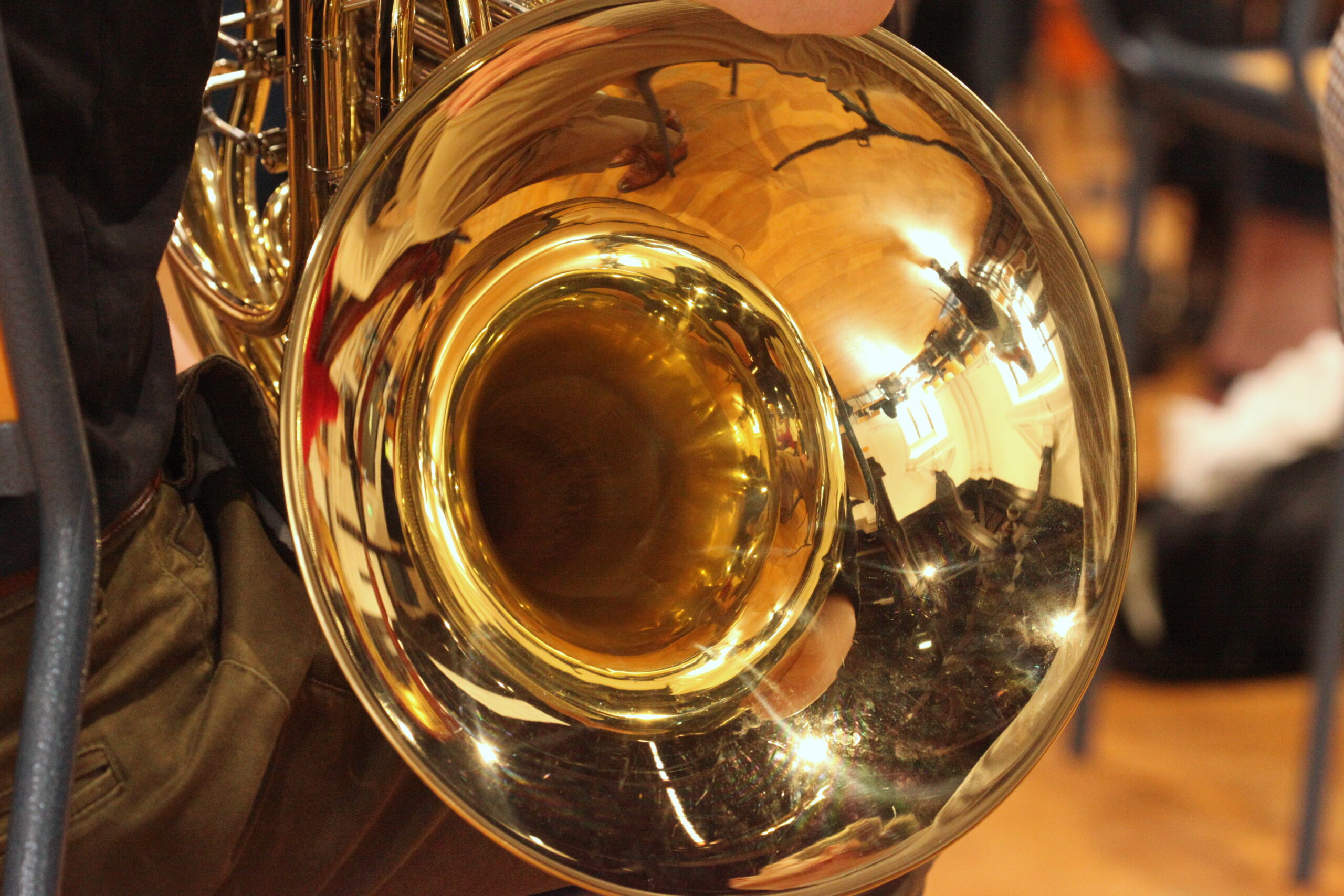
Richard Strauss: An Alpine Symphony
-
Richard Strauss
An Alpine Symphony opus 64
Strauss’s tone poem An Alpine Symphony (Eine Alpensinfonie), premiered in 1915, describes the exhilarating expedition of a trek through the Alpine mountains, featuring waterfalls, glaciers and an ear-splitting storm. Scored for a large orchestra, with additional woodwind and brass, including a heckelphone, Wagner tubas and off-stage brass, the orchestration includes parts for wind and thunder machines, and cowbells.
Applications are invited for all sections of the orchestra from players at Grade 8-plus, or equivalent.

Webern: Passacaglia; Ravel: Rapsodie espagnole
-
Anton Webern
Passacaglia
-
Maurice Ravel
Rapsodie espagnole
These two contrasting masterpieces, by great composers of the 20th century whose musical styles took radically different paths, are united by a moment in time, both being composed in 1908.
Webern’s Passacaglia is, unlike his later work, for the most part lush in tone and texture, relating to a late-Romantic sound and melodic contours that he would later abandon in his quest for a personal, stripped-down style. The simple device of a passacaglia, a mainstay of the Baroque, consists of a short theme in the bass overlaid with a series of variations on that theme. Ravel was born in the Pyrenees, and his mother was Basque, and his lifelong attraction to and mastery of the Spanish idiom is undeniable. Written in only thirty days, the four-movement Rapsodie was an immediate success and firmly established Ravel as a master of the orchestral medium.

Clyne: Color Field; Mussorgsky, orch. Ravel: Pictures at an Exhibition
-
Clyne
Color Field
-
Mussorgsky (orch Ravel)
Pictures at an Exhibition
Mussorgsky’s famous wander round an exhibition of works by Viktor Hartmann, in Ravel’s splendid orchestration, is complemented by Anna Clyne’s 2020 three-movement work inspired by Mark Rothko’s 1961 painting Orange, Red, Yellow.
Applications are invited for all sections of the orchestra from players at Grade 8-plus, or equivalent.

Maconchy: Proud Thames; Vaughan Williams: Symphony No 6
-
Proud Thames
Maconchy
-
Symphony No 6
Vaughan Williams
Vaughan Williams’ Sixth Symphony was his first major post-war work, and its sometimes violent mood inevitably led to it being known as his ‘War Symphony’ – to which he replied “it never seems to occur to people that a man might just want to write a piece of music.” It is paired with his pupil Maconchy’s prize-winning overture, written in celebration of the Thames, depicting “its rapid growth from small beginnings to a great river of sound.”
Applications are invited for all sections of the orchestra from players at Grade 8-plus, or equivalent.
Edinburgh Week
Our August visit to Edinburgh coincides with the first week of the International Festival and Fringe. Running from Saturday to Friday, this is a stimulating week of concentrated music making which has taken place annually since the orchestra’s foundation in 1957. A great way to work through a lot of wonderful repertoire, with two great conductors, rehearsing during the day, the evenings left free for you to explore the city at Festival time. Details of the 2026 Edinburgh week will be announced early in the New Year.
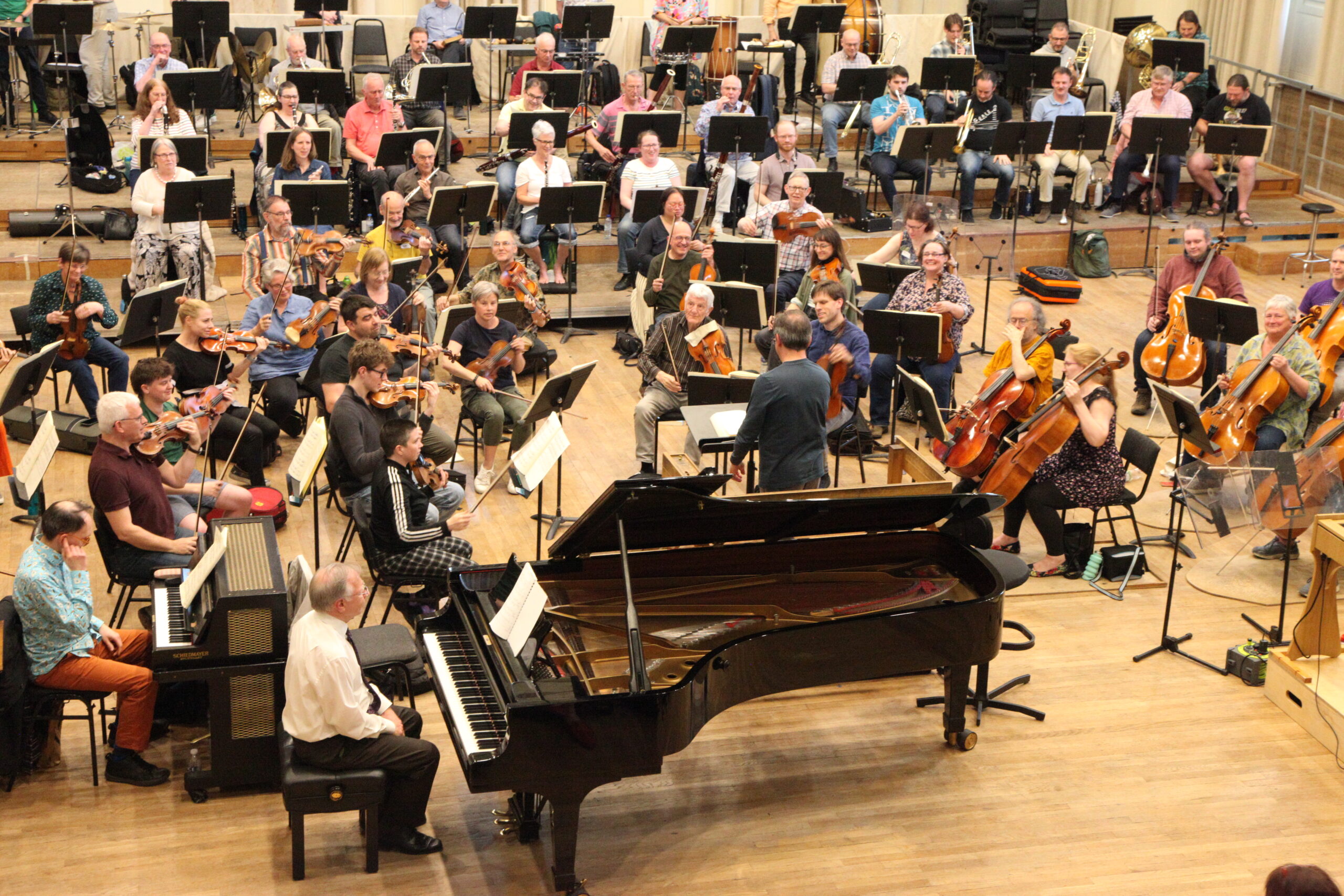
Who are we?
For nearly 70 years, the Rehearsal Orchestra has run orchestral courses for future professionals and talented amateurs, helping thousands of musicians excel in their playing. Our courses simulate professional rehearsal conditions, replicating the speed and focus required for preparing a piece on limited rehearsal time.
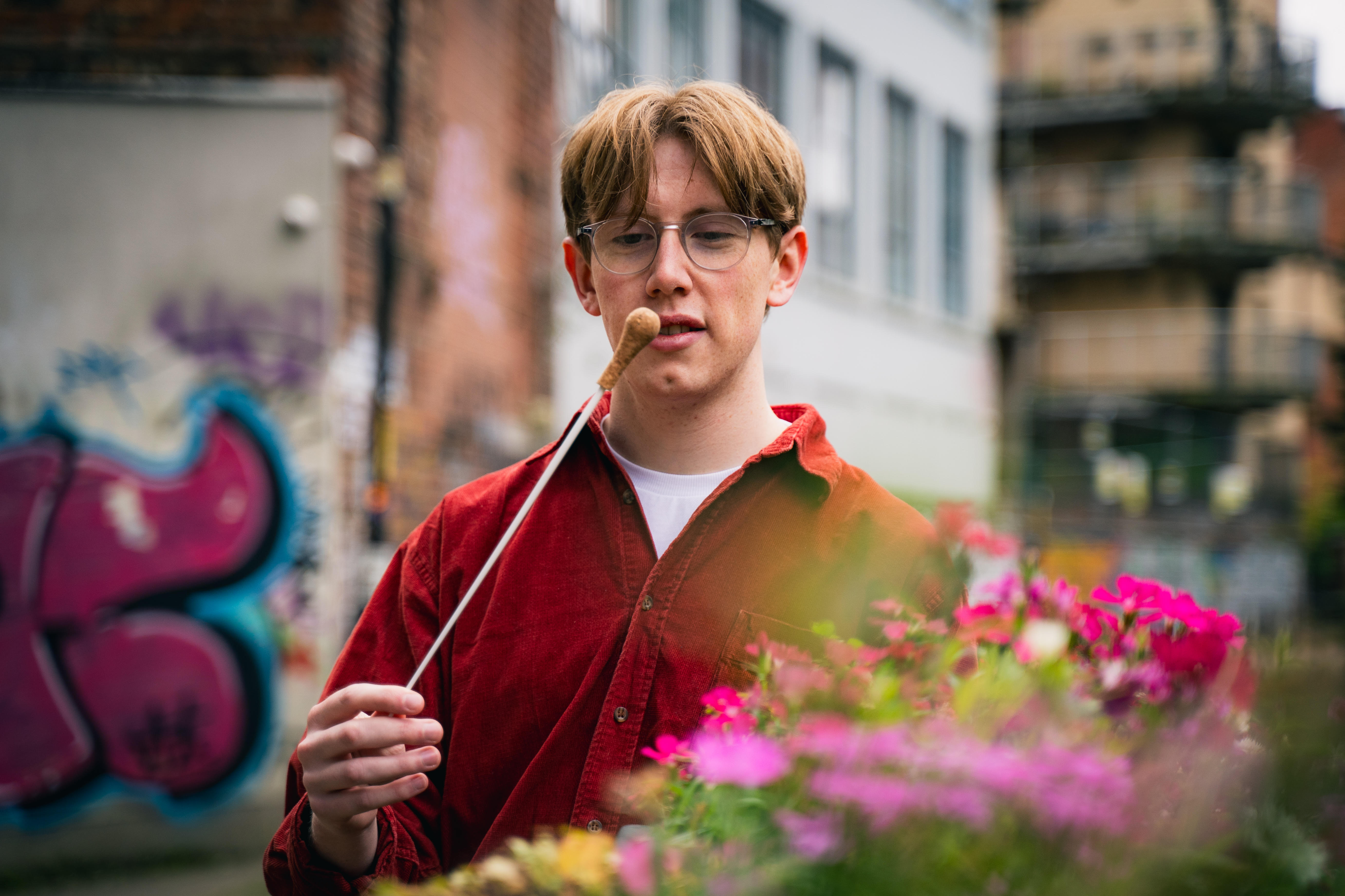
Latest News
Meet the young conductors taking part in our Shostakovich Symphony No. 5 conducting workshop. Part 4.
